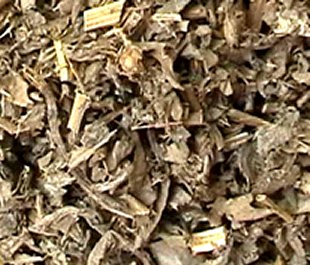Xiao Ji

  | Xiao Ji in TCM:Explore the properties of Xiao Ji according to Chinese
Nutrition and Traditional Chinese Medicine (TCM):
Factoids:
English Name: cirsium, cephalano, common cephalonoplos,
field thistle, setose cephalanoplos
Pharmacuetical Name: Herba Cristii
Properties: sweet, cool
Temperature: cool
Channels: HT, LV
Flavors: sweet
Special Properties:
circulates blood, clears heat, clears damp, stops bleeding
Actions / Indications:
- Cools blood; stop bleeding (reckless movement of
hot blood; deficient heat with blood in sputum, epistaxis, blood in
the urine or stool; uterine bleeding, hematemesis or hemoptysis, bleeding
from knife wounds, uterine bleeding)
- Reduces swellings; relieves toxicity (topically or
internally for sores, carbuncles, abcess, itchy rash, swellings)
- Promotes urination; Clears DH from LV / GB (bloody
lin syndrome, blood in urine, jaundice, hypertension, high cholesterol,
hepatitis)
- (cc: SP and ST cold)
- (note: not as strong as da ji to relieve toxicity,
but more effective for bloody lin or hematuria)
Special Notes:
- Many practitioners use Xiao Ji and Da Ji interchangeably.
Disclaimer: In accordance with our terms of service, by using this web site you agree that none of the information found on this web site constitutes medical advice. You should always consult your doctor before trying any particular food or herbal remedy to treat disease.
Folk remedies presented on this site are designed to address specifc TCM diagnoses, and are not one-size-fits-all. If you would like to learn more about Traditional Chinese Medicine (TCM) and how it relates to Chinese Nutrition, you can book in a free call with a licensed professional. There is no obligation to purchase.
[CLICK HERE for your free INITIAL CONSULTATION] |

